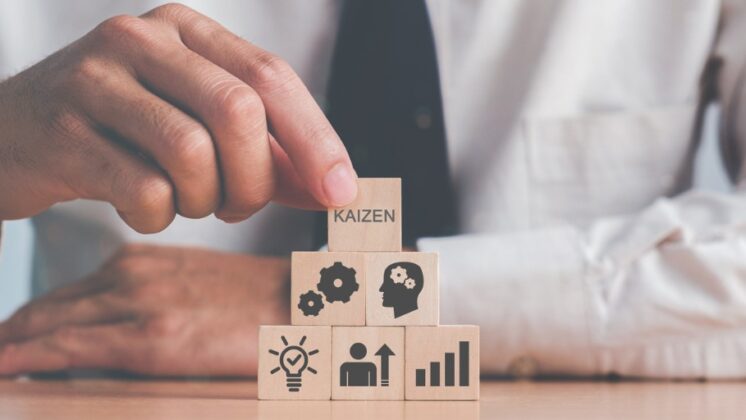Using Japanese Values to Thrive in Global Business
Japanese companies have unique cultural, communication, and operational challenges. But they also have values that have led to remarkable longevity. Check out this seminar to hear how these values help earn trust from overseas head offices and develop employees.
It’s no secret COVID-19 has humbled the global community. Remote work is now the norm in many sectors. As a result, companies in every industry have learned that jobs once considered impossible to do off-site can, in fact, be done from home.
Many jobs . . . but not all.
Manufacturers still have factories to run. Distributors still have orders to deliver.
To keep the economy and people safe while still remaining productive, businesses and offices must innovate. Toyota Motor Corporation is leading the way in this area. Not surprising, considering their continuous improvement process, known as the Toyota Way, is a world-renowned tool utilized not only to survive, but to transform.
We spoke with an affiliate of Toyota in Japan to gain insight into how this leading global corporation is transforming traditional Japanese values for the future.
Using Japanese Values to Thrive in Global Business
Japanese companies have unique cultural, communication, and operational challenges. But they also have values that have led to remarkable longevity. Check out this seminar to hear how these values help earn trust from overseas head offices and develop employees.
COVID-19 calls for continuous improvement processes.
Insights: How has COVID-19 transformed the improvement techniques of Toyota?
Toyota: We’re focusing on strengthening two areas: the survivability of the auto industry and our contribution to societies and industries.
Survivability of the Auto Industry
The pandemic has accelerated our culture of kaizen, or continuous improvement, especially when it comes to white-collar work. The basic output of office work can be ambiguous, but with the current situation, we’re reconsidering everything to increase efficiency.
For us, this means reviewing our processes from the ground up within a simple framework: discard, replace, or continue.
Contribution to Societies and Industries
We’re applying our expertise in the manufacturing industry to support society in this difficult time. For example, we’ve manufactured face shields and emergency vehicles for medical facilities in need. We also expanded support for suppliers to improve productivity.
Cooperating with suppliers and dealers ensures a future for the industry.
Insights: What percentage of Toyota employees do you expect to work in the office going forward?
Toyota: It’s difficult to know for sure, but it will likely depend on the department and the type of work. Based on the current situation, we expect about 70% of so-called “white-collar” workers to telecommute at least part of the time.
When it comes to manufacturing workers, their jobs are all essentially on-site—or have been traditionally. We are examining ways to enable even factory-based employees to work from home, not just for social distancing, but as a means of actually improving productivity and work-life integration.
Next Article
The Toyota Way: Imitate, Improve, Innovate
How Toyota Technology and Innovation Harnessed Hybrids
Staying adaptable leads to better improvements over time.
Insights: How do you plan to balance in-office work, safety measures, and motivation?
Toyota: We’ve introduced transmission-prevention measures in every workplace to alleviate employee concerns about the risk of infection. A big part of that is ensuring that each employee is aware of his or her own behavior. We even have a motto: “Don’t infect others, don’t get infected.”
We’re also reorganizing shifts and installing partitions on assembly lines, etc., where we still have face-to-face operations. And we’ve added temporary parking to accommodate workers who normally commute using public transportation, but now prefer to drive.
Another concern is mental health. Toyota has a systematic mental health support system of psychiatrists, clinical psychologists, and public health nurses. During the pandemic, we’ve made mental health care information available to employees and supervisors on the company website and asked an outside organization to offer stress checks.
Insights: Toyota kaizen culture is a continuous process. What challenges lie ahead?
Toyota: We need to come up with more ways to support diverse working styles while also improving organizational productivity. And to do that, we need to change the way we evaluate and manage employees.
We’re planning and implementing a number of things:
・Further expansion of telecommuting, satellite offices, and general location flexibility
・Infrastructure to support these new working styles
・New digital tools and other paperless systems to transform the company into an IT leader
・Tools and training to help managers evaluate employees who work from home
All of this comes back to those two areas we aim to strengthen: auto industry survivability and contribution to societies and industries. Our president, Akio Toyoda, expressed his views at the annual general shareholder meeting:
“Toyota has not changed its longstanding philosophy of creating better cars based on shared values, contributing to the creation of prosperous communities, and promoting a new ‘mobility society.’ At the same time, we must get through this difficult period—not for our own sake, but for the sake of the world and the people who support Toyota on a daily basis. We must become a company that supports the automotive industry and the nation.”





